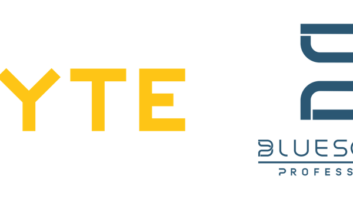
US taxpayers have been warned of the potential tax consequences they could face if they’ve increasingly been working from home due to the coronavirus pandemic. According to a new American Institute of Certified Public Accountants (AICPA) poll, 55% of Americans who have worked remotely during the health crisis had no knowledge of the possible tax liability that might arise from not changing their state tax withholding to reflect their remote work location.
With 71% of those questioned also not aware that working remotely in other states can have an impact on the amount of state taxes owed, the fear is that millions of workers will face a tax shock if they don’t prepare properly ahead of the 2021 tax filing season. AICPA said that of the 58% of Americans currently employed, 42% had worked remotely during the COVID-19 pandemic and 25% continue to do so now.
“Working remotely can have tax implications that vary from state to state,” says AICPA Director for Tax Policy & Advocacy and state tax expert, Eileen Sherr, CPA, CGMA. “The sudden and unplanned increase of many employees working remotely due to the pandemic has left many of them unaware of their current state tax liabilities and any additional steps they need to take now and at tax filing time.”
Potential tax liability

The tax confusion only adds to the financial problems that many Americans have faced in 2020. With unemployment writ large due to the pandemic, the hardest hit households have looked to personal loans online and credit cards to help cover the financial cracks. The fear is that an unexpectedly high tax bill or the threat of fees and penalties for failing to file correctly might push more closer to the edge, perhaps even towards payday loans and debt consolidation companies. With such problems in mind, the Internal Revenue Service also recently announced new relief for taxpayers who are finding it difficult to meet their tax obligations.
Worryingly, many people do appear unprepared for the types of questions that tax filing might pose next year. Indeed, 54% of those surveyed also were not aware that the number of days worked out of the state where their physical workplace is located could have an impact on the amount of state taxes owed. And adding to the potential for confusion, of those still working remotely in a state outside of where they’d normally be based, many said they had done so across multiple states – on average three – for relatively short periods of time.
Providing some scope for optimism are the 67% of those who have worked out-of-state and have notified their employer of the state they are working in – 51% have also tracked the number of days they worked in each state. Those who are most prepared, however, and who should have little to worry about come tax filing day, are the 41% who said they had already changed their state income tax withholding.
“Some remote workers are taking the right steps – notifying employers, tracking days and changing state tax withholding – but there are still too many that are not taking action, likely because they’re not aware they should be,” says Sherr. “Failure to take these steps could mean an unpleasant surprise at tax time in 2021. Remote workers should take steps now to track their remote work and try to educate and prepare themselves for what the upcoming tax season might mean for them. I strongly urge taxpayers to talk with a certified public accountant (CPA) now about their situation.”

How remote workers can prepare for tax filing
If you’re working remotely but have been unaware of the potential tax consequences of doing so, there are a number of steps you should take to prepare for filing your 2021 taxes:
- Make a list of any states in which you’ve worked remotely during 2020.
- If you haven’t tracked the number of days you’ve worked in other states, try to make an approximation and count from here on.
- Given income taxes may also be levied by cities, counties, municipalities, school districts or other jurisdictions, try and track this level of detail also.
- If you’re in any way unsure, consult a CPA with your questions about how and where to file state taxes. A licensed CPA can help navigate those questions and effectively manage your state tax liability.
- Check your state tax withholding, and make any adjustments that are needed. This is important as if you have incorrect state tax withholding, you may owe state taxes, interest and penalties when you file your taxes.
- Going forward, always keep a record of all the jurisdictions where you work remotely.
This article originally appeared on toptenreviews.com
See also: Newegg, Give Back Box Team Up To Give Back This Holiday Season













